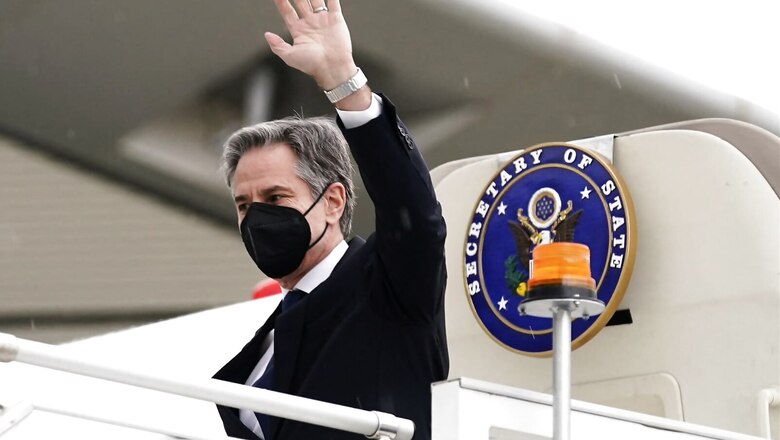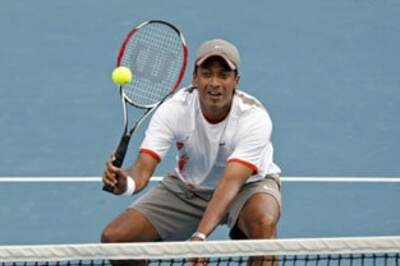
views
My city – Melbourne – is to play the host for a meeting of foreign ministers from Quad nations. The Quad, officially the Quadrilateral Security Dialogue, represents India, Australia, the US and Japan. For a meeting that was reinvigorated to focus on “supply chains”, the Quad has quickly taken on a new priority of regional security and countering the influence of China.
The meeting is among the major steps to boost the role of the Quad. This is driven by the growth of and disinformation from China, and while it is not linked to the recent Russia-China statements, no doubt this will be on the agenda.
Some are cautious that ramping up the Quad might not be “smart diplomacy” and could undermine existing regional architecture such as ASEAN. Australia is genuinely excited that Indian foreign minister S. Jaishankar is attending the meeting. The two nations are strategically close, and discussions are at advanced first stage for a Free Trade Agreement (known as CECA). Australia is also home to over 700,000 Indians and apart from pandemic years, plays host to over 100,000 Indian students per year. Melbourne is the major “Indian” centre in Australia, being home to most of the Indian migrants and events such as Diwali taking centre stage in the city’s annual agenda.
There is no doubt the meeting will ramp up initiatives to counter China’s disinformation campaigns and coercive economic measures as the four countries look to keep the focus on Asia amid the Russia-Ukraine crisis. US Secretary of State Antony Blinken has landed in Melbourne in his first visit to Australia and can be expected to brief the Quad on American concerns. Australia is alarmed at the boost to China’s “disinformation” campaigns during the COVID-19 pandemic. Add to this, Chinese coercive economic and trade measures which have imposed over A$20 billion of trade blocks against Australia. Australian Foreign Minister Marise Payne already said in the lead up to the Quad that a key focus would be to help countries in the region fend off coercion from other nations.
The Quad message has become blunt – it sees itself as a vital network of liberal democracies committed to practical co-operation, including supporting a regional recovery and ensuring all Indo-Pacific nations, large and small, are able to make their own strategic decisions, free from coercion. That is, free from Chinese interference.
After an ordinary start, the Quad had a sleepy history and narrow focus, but was re-established in 2017, becoming strongly focused on the security challenges facing the region in the face of a rising and more aggressive China. For the record and as expected, China has described the formation of the Quad as an attempt at “containment of China”.
We also know the Quad will discuss distributing more vaccines in the region, plus boosting humanitarian disaster relief in the region following the recent volcanic eruption and tsunami in Tonga.
Australia is concerned that the Ukraine crisis could distract from the Quad’s priorities in the Indo-Pacific. It will urge Quad members to continue focusing on Beijing’s militarisation of the South China Sea and threats against Taiwan. The Australian government is encouraged in these goals by the fact that US Secretary of State Antony Blinken went ahead with the visit despite the Ukraine crisis occupying much of the Biden administration’s resources.
Professor Rory Medcalf, head of the National Security College at the Australian National University, pointed out that Blinken’s decision to proceed with his trip to Australia and Fiji sent an important message that the US was staying committed to the Quad and the Indo-Pacific amid the Ukraine crisis. He said: “It’s impressive how much the four countries are maintaining the momentum of high-level meetings. It’s a rapidly growing security architecture and that’s a long way from the dismissive attitude China had towards the Quad just a few years ago.”
A former senior Australian diplomat Richard Maude, who helped revive the Quad, jumped into the debate in his role as executive director of policy for the Asia Society in Australia. He urged the Quad to continue their focus on Southeast Asia and ASEAN – “they need to have a political agenda that responds to ASEAN’s priorities.”
The foreign ministers’ deliberations will feed into the next Quad leaders’ summit, touted to be hosted by Japan in May. If you judge the Quad on the regularity of meetings and level of delegates alone, you can see it has ramped up activity and the meeting in Melbourne this week will keep that momentum going.
But is it “smart diplomacy”?
Former Australian diplomat (High Commissioner to India) and adviser to Asialink, John McCarthy, has defined hard, soft and smart power. Hard power is the use of military or economic coercion. Soft power is the use of national reputation to influence others. “Smart power” is the right combination of soft and hard. Time will tell if the Quad is “smart power”.
Stephen Manallack is blogger at INTO INDIA, Director of EastWest Advisors and former President of Australia India Business Council. The views expressed in the article are those of the author and do not represent the stand of this publication.
Read all the Latest Opinions here

















Comments
0 comment